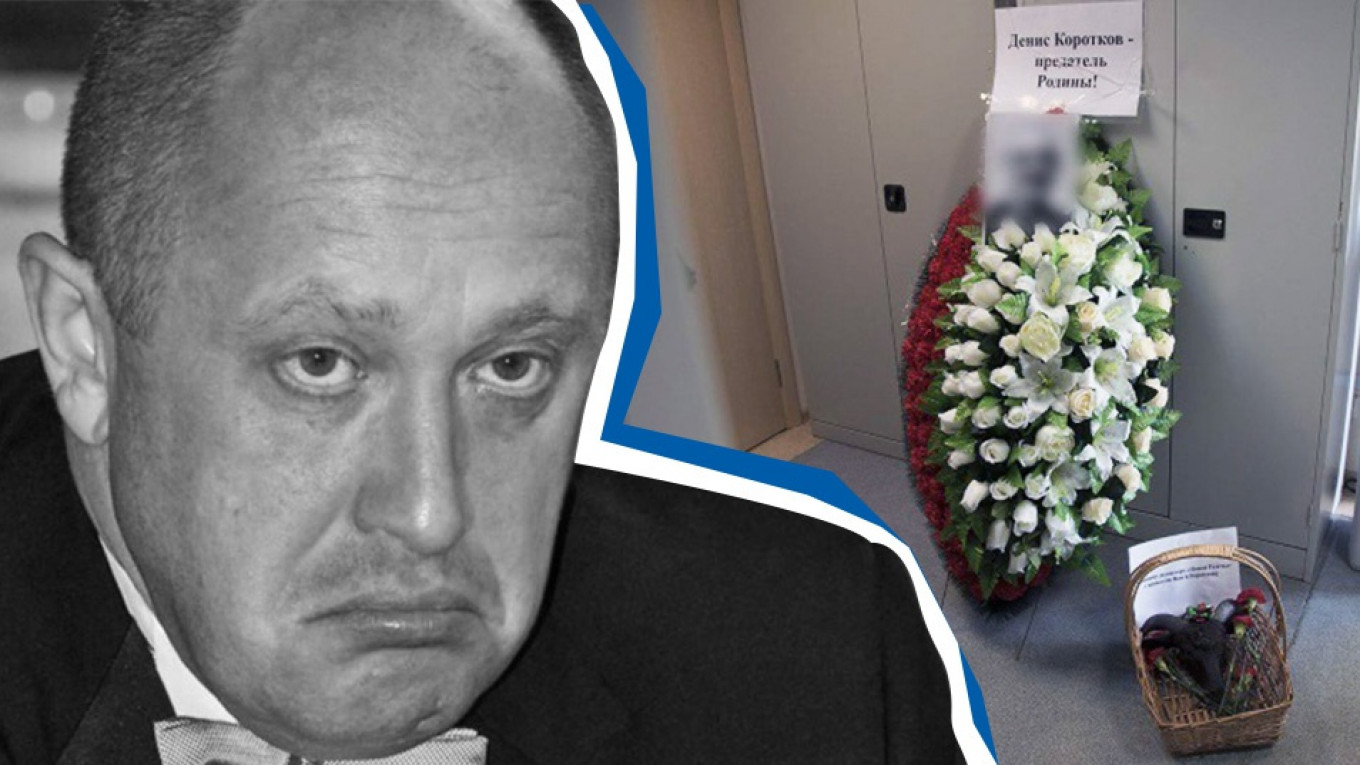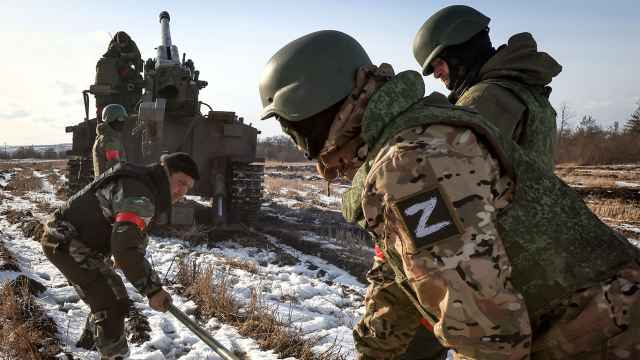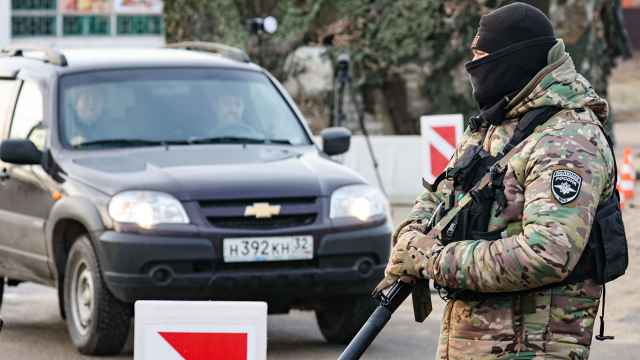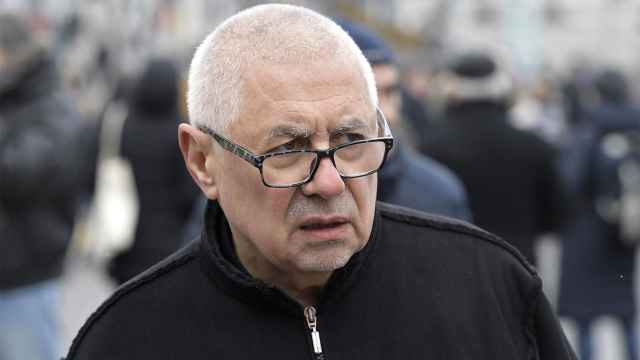Russia seems increasingly to be in two time zones: the late 2010s and the mid-1990s. Recent revelations by the Novaya Gazeta investigative newspaper about dirty tricks and dirtier killings alleged — but not proven — to be connected to businessman Yevgeny Prigozhin are a depressing reminder of the way Russia’s elite appear to be devolving. This is not quite a return to the old ways; this is the 1990s in an Italian suit, but with a flick-knife in a pocket.
Novaya Gazeta claims that attacks on opposition activists and bloggers were carried out on Prigozhin’s behalf. The story is based on the testimony of one of the men involved, ex-convict Valery Amelchenko, who has since himself disappeared. Novaya Gazeta’s reporter Denis Korotkov – who himself received the symbolic threat of a funeral wreath from persons unknown – believes that Amelchenko may have been abducted or killed.
It is a luridly over-the-top tale of government critics and business rivals of Prigozhin’s being targeted, of murders in the Donbass and even drug experiments in Syria. At present it is hard to say whether it is wholly accurate and how far Prigozhin himself was behind these operations, but it illustrates something about the elite today.
For a while, Russia was going through a civilizing process, abandoning the wild, violent, get-rich-quick-and-damn-the-consequences ways of the 1990s in the quest for a degree of legitimacy and also security. Overt ‘raiding’ – stealing assets through violence, threat or rigged court cases – was on the decline. Contract killing, while by no means unknown, was a less kulturny, less acceptable, business tactic.
Quite when did the pendulum begin to swing back? The 2008 financial crash and post-2014 recession saw dirty old habits reassert themselves. Beyond that, the increasingly hostile atmosphere in the West also made it less worthwhile to worry too much about international reputation.
But it also reflects the rise of the adhocrat, a very Russian figure who crosses the boundaries between business, politics, geopolitics and, often, crime and intelligence. Prigozhin, for example, appears to have a business model predicated on doing what the Kremlin wants, and doing well out of it. He gained his over-used nickname of “Putin’s chef” because he ran a restaurant in St. Petersburg, which the future president liked to frequent, and subsequently his catering empire prospered on the back of major government contracts.
Prigozhin is “Kremlin-connected” – who isn’t, to a degree? – without being one of Putin’s true friends or cronies. Like all the adhocrats, he needs to be useful. The catering magnate got into internet marketing and black PR when the Kremlin wanted to unleash trolls to influence first domestic and then international opinion. Then he became a condottiere, providing the civilian façade to the military intelligence operation that was the Wagner mercenary organization. When Wagner was no longer so crucial in Syria, he was in effect handed the force in trust, expected to keep it going with new contracts or even his own money, until the Kremlin needed it again. Is he a catering magnate, a dark lord of disinformation, or a warlord for hire? All of them, and none of them, as the Kremlin requires.
It is these adhocrats, whose profits and power depend directly on their relations with the Kremlin, who appear to be on the rise – and in the forefront of the new “decivilization.” Of course, everyone depends on the goodwill of the regime, but those whose positions depend so clearly on state largesse, state assets and state contracts, are at once most vulnerable and also, perversely, most brazen.
So long as their stars are in the ascendant, they are invulnerable, and this is a privilege and an opportunity to exploit to the fullest. As uncertainties mount — about the economy, about geopolitics, about Putin’s future — then the impulse is to make money and prosecute feuds today, lest it not be possible tomorrow.
The result is a spiral of dirty tricks and dirtier business, with an underlying theme of violence that betrays the extent to which the adhocrats’ culture is rooted in those of the gangsters and the spooks more than the bankers and the bureaucrats.
We have seen an upsurge in raiding. We have seen more contract kills, inside and outside Russia. We have seen Sechin – who for all his long links to Putin is in many ways the greatest adhocrat of them all – even frame a minister as an act of vengeance and warning. We have also seen the adhocrats increasingly active in pushing the Kremlin’s agenda internationally, eager to retain favor. The increasing incivility of Russian conduct both at home and abroad is to a large extent down to them, Putin’s needy little helpers.
Prof. Mark Galeotti is a senior researcher at the Institute of International Relations Prague and Jean Monnet Fellow at the European University Institute and the author of “The Vory: Russia’s Super Mafia.” The views expressed in opinion pieces do not necessarily reflect the editorial position of The Moscow Times.
A Message from The Moscow Times:
Dear readers,
We are facing unprecedented challenges. Russia's Prosecutor General's Office has designated The Moscow Times as an "undesirable" organization, criminalizing our work and putting our staff at risk of prosecution. This follows our earlier unjust labeling as a "foreign agent."
These actions are direct attempts to silence independent journalism in Russia. The authorities claim our work "discredits the decisions of the Russian leadership." We see things differently: we strive to provide accurate, unbiased reporting on Russia.
We, the journalists of The Moscow Times, refuse to be silenced. But to continue our work, we need your help.
Your support, no matter how small, makes a world of difference. If you can, please support us monthly starting from just $2. It's quick to set up, and every contribution makes a significant impact.
By supporting The Moscow Times, you're defending open, independent journalism in the face of repression. Thank you for standing with us.
Remind me later.








